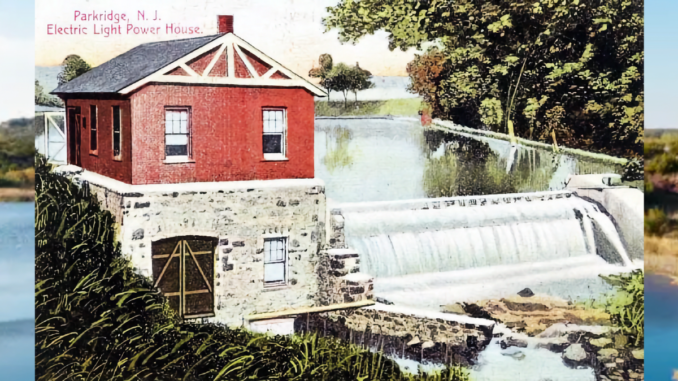
PARK RIDGE, N.J.The Borough Council voted June 24 to move forward with placing a non-binding referendum question on dredging Mill Pond on the Nov. 4 General Election ballot—and now faces an early August deadline to finalize and submit that question to the county clerk.
Borough Clerk Maggie Giandomenico said the deadline to submit a public question for the November ballot is Friday, Aug. 8. The next regular council meeting is Tuesday, July 8 at 8 p.m. The following meeting is Aug. 12—after the deadline—making July 8 likely the last opportunity to formally approve a ballot question without calling a special meeting.
Mayor Keith Misciagna said he would organize a citizens committee to help develop the wording of the question and ensure it is clearly presented to voters.
[Related: “Mill Pond sediment testing OK’d; dredge question urged,” June 5, 2025, by Michael Olohan; Park Ridge’s engineer’s report on the status quo; and Pascack Historical Society’s history of Mill Pond]
Following a sharp exchange with Councilor William Fenwick and Council President Gregory Hoffman, the mayor told the audience: “You got what you want. We have progress, so I’ll put a committee together, we’ll make sure it looks truthful, and let’s hope it passes.”
Councilors voted 5-0, with Fenwick abstaining, to move ahead with drafting a public question for the ballot. Fenwick said he was waiting on further information from Borough Engineer John Dunlea and another consultant, GZA GeoEnvironmental Inc., regarding the dam’s structural integrity before he could support advancing a referendum.
The vote followed several public meetings where residents, the mayor, and councilors discussed—sometimes heatedly—how best to address longstanding sediment buildup in Mill Pond, pollution concerns, and the condition of the dam.
Residents at the June 24 meeting continued to press for action. Several urged the council to hold a non-binding referendum to gauge public support for dredging and related improvements.
Resident Kari Shelby, who launched a petition supporting dredging, cited financing scenarios and said bonding $5 million might cost each taxpayer $5 to $6 monthly—or “a coffee per month, or a pizza party per year”—depending on interest rates. She estimated the annual cost per household at about $96.
Resident Andrew Gajary asked the council, “Why is it taking so long to do something?” He criticized the wording of the November 2023 referendum question as “very disingenuous” and confusing to voters.
Misciagna agreed that last year’s question misled many voters into thinking the proposal was more costly than it was. That referendum—also non-binding—was defeated at the polls.
Councilor Fenwick said the engineer had confirmed that NJDEP requires a new sediment analysis before any dredging may proceed. He noted the topic has been discussed since at least 2012, and that recent cost estimates had not factored in potential dam repairs.
Officials said recently that the dam was downgraded to a “fair” rating—below “satisfactory”—after its latest inspection. The DEP scale rates dams as satisfactory, fair, poor, or unsatisfactory.
Council President Greg Hoffman said a referendum would serve as “a way of polling the town to see: Is the town behind this?” He emphasized the importance of presenting the question clearly to voters.
Misciagna and Fenwick exchanged pointed remarks throughout the 50-minute discussion, sparring over cost projections, dam concerns, and how best to proceed.
Councilor Michael Mintz said the referendum should be “the first step to convince citizens what should be done.” He said the question would ask whether taxpayers support a “reasonable number to spend” in combination with outside grants.
He noted that while this year’s budget is already set, voter support could help unlock future matching funds from state or federal sources.
Mintz also pushed back when Fenwick raised doubts about what could actually be done with $10 million, saying the town would get “$10 million more than nothing.”
Misciagna said he would ensure this year’s ballot question “would be truthful and not be deceptive”—a comment that clearly irritated Fenwick, who defended the previous referendum wording.
“Look, if it fails, it fails. We’re all adults,” said the mayor. “If the majority of this town votes it down, we have to live with it and figure something else out.
